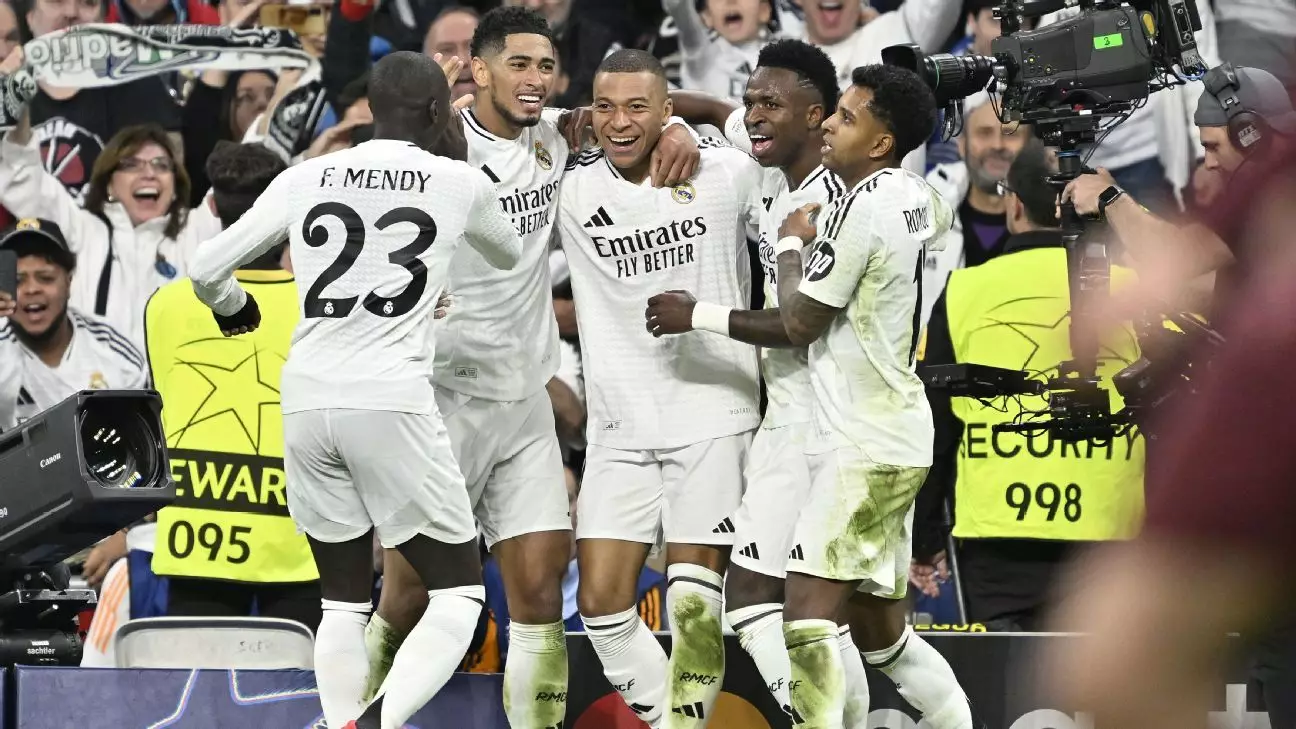In a dazzling display of skill and composure, Kylian Mbappé recently scored a stunning hat-trick that propelled Real Madrid to a 3-1 victory over Manchester City, securing their position in the Champions League round of 16. This impressive performance has sparked conversations surrounding his potential to match the legacy of Cristiano Ronaldo, a player whose records and accolades have become the benchmark for footballing excellence. Carlo Ancelotti, the seasoned manager of Real Madrid, openly acknowledged Mbappé’s capabilities, stating that with diligent effort, the French forward can indeed aspire to where Ronaldo’s achievements lie. This comparison opens a broader discussion about the pressures that accompany greatness and the factors that truly contribute to a player’s success over time.
Ronaldo’s career at Real Madrid is nothing short of legendary, with an astounding 451 goals in just 438 appearances. These numbers set an extraordinarily high standard for any player, including Mbappé. Ancelotti emphasized that while Mbappé is immensely talented, the road to achieving such heights requires relentless dedication and a willingness to improve continually. Importantly, Ancelotti also highlighted that while individual brilliance is significant, the collective strength of the team plays a crucial role in securing victories. This acknowledgment reflects a broader truth in football: the greatest achievements are rarely the result of one player’s efforts alone.
What stands out even more profoundly in this narrative is Mbappé’s philosophy regarding personal achievement. After emerging as the Champions League’s top scorer in the previous season without clinching the title, he conveyed a sentiment that resonates with many athletes: personal accolades are meaningless without collective triumph. The Frenchman stated, “If with these goals we win titles, I will sign with my blood.” This perspective underscores the essence of sportsmanship—prioritizing team success over individual recognition speaks volumes about a player’s character and commitment. In a world that often glorifies individual statistics, this refreshing outlook could inspire current and aspiring athletes alike.
Despite the triumph against Manchester City, Ancelotti expressed concern regarding his team’s slow start to the season, which forced them through the arduous knockout stage rather than a smoother qualification process. He acknowledged that the journey to reach the round of 16 was not ideal, noting, “It’s not positive at all having to go through the knock-out.” Such sentiments reflect the reality of high-stakes competitions, where every game counts and the pressure to perform intensifies as the season progresses. As the Champions League unfolds, Madrid must rapidly adapt and find their rhythm, particularly as they aim for a record-extending 16th title.
As the anticipation builds for the next stage of the tournament, questions arise regarding who Real Madrid will face—a choice between Bayer Leverkusen or city rivals Atlético Madrid. Interestingly, Mbappé expressed a preference for Atlético, citing logistical conveniences that come with playing against local rivals. This viewpoint reflects a calculated approach that prioritizes team dynamics and fatigue management, crucial elements when navigating a congested fixture schedule.
Ultimately, Kylian Mbappé’s recent performances and his aspirations to ascend to Cristiano Ronaldo’s level spotlight not only his immense talent but also the evolving landscape of football. The comparison to a player of Ronaldo’s caliber invites both admiration and scrutiny, outlining the pathway filled with challenges and the hard work required to achieve such greatness. For Mbappé, the journey is just beginning, and with each match, he moves closer to fulfilling his potential. As fans and analysts alike keep a watchful eye on his development, the football world eagerly anticipates the possibility of witnessing the birth of another legend.

Leave a Reply